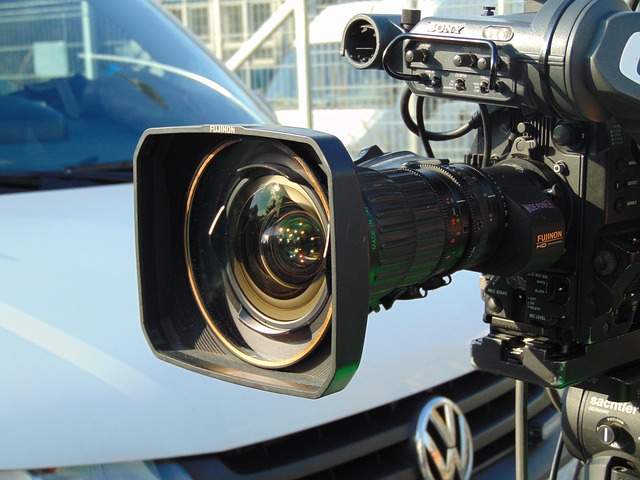Full auto protection packages offer comprehensive car insurance, protecting policyholders from various risks, including accidents with uninsured drivers, natural disasters, and theft. It combines liability, collision, and comprehensive coverages to provide peace of mind and financial security against increasing threats from uninsured motorists, offering a vital safety net for responsible drivers.
In today’s dynamic automotive landscape, where risks are ever-evolving, understanding comprehensive car insurance becomes paramount. This article delves into the intricacies of full auto protection, a robust suite of coverages designed to safeguard drivers against unforeseen circumstances. With a rising number of uninsured drivers on the road, this protection is more vital than ever. We’ll explore key components such as liability, collision, and comprehensive coverage, shedding light on how these protections can mitigate financial losses in various scenarios, especially when dealing with at-risk drivers.
- Understanding Full Auto Protection Package
- Importance of Liability Coverage in Car Insurance
- Collision Coverage: Protecting Your Vehicle from Damages
- Comprehensive Insurance: Broadest Coverage for Unexpected Events
- Uninsured Motorists and the Rising Risks
- How Full Auto Protection Mitigates Financial Losses
Understanding Full Auto Protection Package

Full auto protection packages are designed to offer comprehensive coverage for vehicle owners, protecting them from various financial burdens associated with accidents and other unforeseen events. This package typically includes liability insurance, which covers damages caused to others in case of an accident; collision coverage, that helps offset the cost of repairing or replacing your own vehicle after a collision; and comprehensive insurance, which provides protection against non-collision related incidents like theft, vandalism, natural disasters, and more.
By bundling these coverages together, full auto protection offers peace of mind knowing that you’re prepared for a wide range of scenarios. With the growing number of uninsured drivers on the road, this type of coverage becomes even more critical. It acts as a safety net, shielding policyholders from substantial financial losses that could arise from accidents with uninsured or underinsured motorists.
Importance of Liability Coverage in Car Insurance

Liability coverage is a cornerstone of comprehensive car insurance, offering protection against claims arising from accidents caused by your actions. It typically includes bodily injury liability, which covers medical expenses for injured parties, and property damage liability, compensating owners for damaged or destroyed property. This type of coverage is essential as it shields you from significant financial burdens, including legal costs and potential judgments, should you be held liable in a crash.
In today’s world, with an increasing number of uninsured drivers on the roads, liability coverage becomes even more critical. It acts as a safety net, protecting you from the high costs associated with accidents involving these drivers. Without it, you could face substantial out-of-pocket expenses if you’re in a collision with someone who doesn’t have insurance or is underinsured.
Collision Coverage: Protecting Your Vehicle from Damages

Collision coverage is a vital component of full auto protection, designed to safeguard your vehicle from damages in case of an accident. This coverage kicks in when you’re involved in a collision with another vehicle or object, regardless of fault. It helps cover the cost of repairs or replacement for your car, up to its actual cash value. This is especially important given the increasing number of uninsured drivers on the road, as they may not have liability insurance to cover any damage they cause.
Having collision coverage provides peace of mind, ensuring that even if you’re at fault for an accident, your vehicle’s repair or replacement costs will be partially or fully covered. This protection is broad and can extend to other types of incidents besides collisions, such as rolling over or hitting a fixed object, offering comprehensive security for your investment in your vehicle.
Comprehensive Insurance: Broadest Coverage for Unexpected Events

Comprehensive insurance is designed to protect you from a wide range of unexpected events, going beyond the basic liability and collision coverages. This type of coverage kicks in when your vehicle suffers damages that aren’t the result of a collision with another vehicle or driver. It includes protection against natural disasters like floods, earthquakes, or severe storms, as well as man-made hazards such as vandalism, theft, and even falling objects.
The broad nature of comprehensive insurance makes it an excellent choice for those who want to be fully prepared for any eventuality. Unlike collision coverage which primarily covers accidents involving other vehicles, comprehensive insurance provides peace of mind by shielding you from financial burdens associated with non-collision related incidents, ensuring your vehicle remains in top condition regardless of unforeseen circumstances.
Uninsured Motorists and the Rising Risks

Uninsured motorists pose a significant risk to drivers on the road, with their lack of insurance coverage potentially leaving victims to bear the brunt of financial losses in the event of an accident. The rising number of uninsured drivers is a growing concern, reaching 14% in 2022. This trend highlights the increasing difficulty in ensuring adequate protection for oneself and one’s vehicle.
The impact of accidents involving uninsured drivers can be severe, as victims may face substantial medical bills, vehicle repair costs, or even legal fees. With such a high percentage of drivers forgoing insurance, it has become more critical than ever for responsible motorists to opt for comprehensive coverage that includes protection against these risks.
How Full Auto Protection Mitigates Financial Losses

Full auto protection acts as a comprehensive safeguard, significantly reducing financial losses stemming from accidents. By encompassing liability, collision, and comprehensive coverages, it provides a multi-layered defense against various risks. In the event of an accident—especially with uninsured or underinsured drivers—liability coverage steps in to protect you from claims made by others involved. Collision coverage is designed to reimburse you for damages to your vehicle after a crash, while comprehensive coverage steps in for other types of losses, like theft or natural disasters.
This combination ensures that not only are you protected against direct damage but also potential financial burdens arising from indirect incidents. With the increasing number of uninsured drivers on the roads, full auto protection becomes an even more crucial safety net, safeguarding your finances and offering peace of mind behind the wheel.
In today’s world, where risks on the roads are ever-evolving, having a comprehensive full auto protection package is not just advisable but essential. By combining liability, collision, and comprehensive coverages, drivers can navigate the uncertainties of the road with greater peace of mind. With uninsured drivers posing a significant threat, this type of insurance acts as a shield, safeguarding against potential financial burdens resulting from accidents caused by such drivers. Thus, it’s a wise step towards protecting both your assets and your future financial stability.



